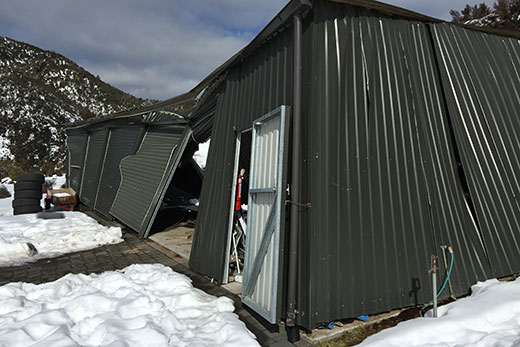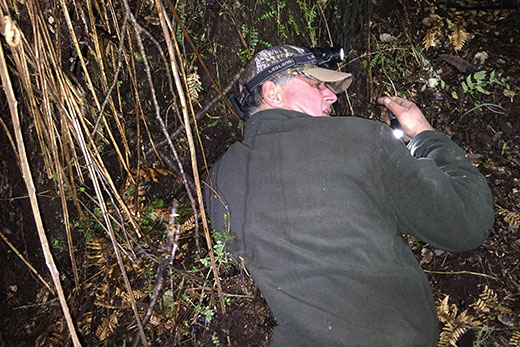Heavy snowfall in the central North Island is creating fears for this season's kiwi egg collection.
The team at the Maungataniwha project, one New Zealand's most successful conservation initiatives, fear this season's eggs may hatch before they can be safely collected and transported to the incubation centre at Rainbow Springs in Rotorua.
Access to the nests has been near impossible with teams having to helicopter the first eggs out of the Maungataniwha Native Forest on Saturday.
The optimum timeframe for eggs to be collected in is 25 days.
If the eggs are less than 10 days old when removed there is just a one percent chance of hatching success.
'Of course, it's possible the birds will cope just fine with the lousy conditions and that our fears and concerns will have been for nothing. But either way we will be considerably wiser and will have learned a lot about this iconic creature's ability to breed successfully in harsh conditions,” says chairman of the Forest Lifeforce Restoration Trust Simon Hall.

Heavy snows have damaged infrastructure used for conservation projects.
If hatching occurs, chicks have a five per cent chance of survival due to predators in the area. The survival chance is dwindled again by the weather conditions making foraging for food difficult.
'They're not used to these conditions and don't have as many reserves as some of the older birds, which can lose 10 per cent of their body weight before they risk damaging their vital organs,” says Simon.
Kiwi typically produce two clutches of eggs between September and February.
Eggs are taken into incubation centers to encourage mating pairs to produce another clutch.
For more information visit Rainbow Springs' website at: www.rainbowsprings.co.nz



1 comment
Look
Posted on 15-08-2016 19:08 | By overit
Fancy putting these cheap sheds around that area, they are munted from the heavy snow.
Leave a Comment
You must be logged in to make a comment.